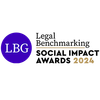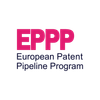Authors and publishers – which elements of a book can you protect with trade marks?

If you’re an author or publisher, it’s important to protect your creations from being copied. Here’s a quick guide to the types of trade mark protection that you can benefit from.
Titles
Book titles generally can’t be registered as trade marks. This is because the purpose of a trade mark is to identify the goods and/or services of a particular entity — and book titles don’t really fulfil that function.
The exception to this rule is if the title, or a common element in the title, is used for more than one book (the book is part of a series).
An obvious example is the Harry Potter series. As the titles all include the common element “Harry Potter”, this phrase serves to identify those books as originating from the same author. The titles of all the Harry Potter books are registered as trade marks. This is also the case for the children’s horror fiction series Goosebumps, which is a registered trade mark.
Character names
With names, the same principle arises. The name of a fictional character can’t be registered as a trade mark for its own protection but can be registered when the trade mark indicates a particular source of goods and/or services. For example, the name Hercule Poirot has been registered as a trade mark. This character appears in 33 novels, two plays and more than 50 short stories published between 1920 and 1975 and is, of course, synonymous with the works of Agatha Christie.
Going back to Harry Potter, the character names Ron Weasley, Harry Potter, Hermione Granger, Albus Dumbledore and Draco Malfoy have all been registered as trade marks, since these character names are synonymous with the works of JK Rowling.
Peter James is the author of a series of 15 novels, all featuring Brighton-based Detective Superintendent Roy Grace, and this character is identified with his works. Trade mark registrations have been secured by the publishing company, of which Mr James is a director, for the names Roy Grace, DI Grace, DS Grace and Grace.
Author names
It’s also possible to register personal names as trade marks and some authors do this. JK Rowling has taken the precaution of registering her name and signature as trade marks. The name Agatha Christie is registered as a trade mark, as well as Enid Blyton and her signature, and the names Catherine Cookson, Wilbur Smith and Patricia Cornwell.
Securing protection
As you can see, there are a number of avenues for authors and publishers to explore when it comes to intellectual property rights. Ultimately, it’s best to seek the advice of a trade mark attorney, who will be able to assess your unique situation and help you to secure the right type of protection.
We work with a number of publishing companies, individual authors and a host of other creatives. Get in touch with us for advice tailored to your creative works.


















